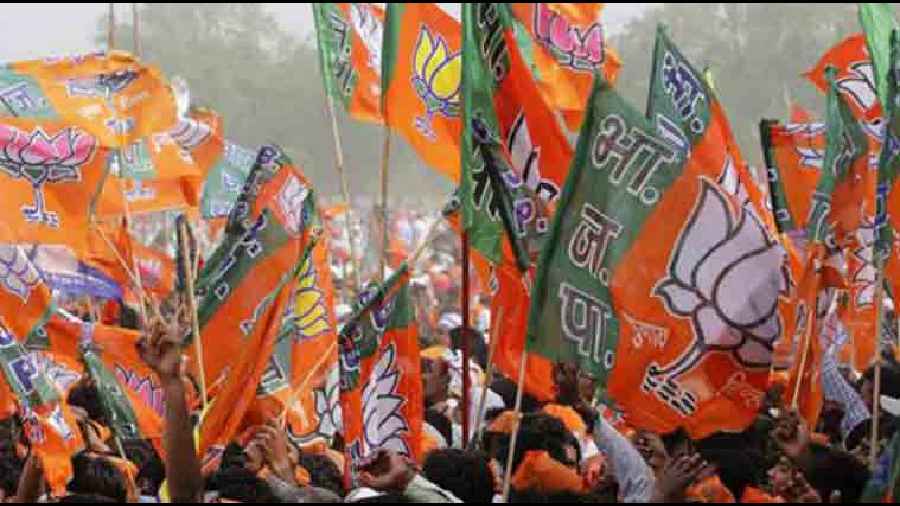There was a time when the party in power in New Delhi would leave a deep imprint on the assemblies of northeastern states. The Congress’s past hegemony in this region could well be attributed to its stints in power at the Centre. The decline of the Congress corresponded with the rise of indigenous parties. But it appears that the clock is being turned back, with the political winds in Delhi blowing over the Northeast, once again. Proponents of this hypothesis would find themselves on a firmer footing after the Bharatiya Janata Party’s impressive performance in the latest round of assembly elections. Among the three states, Tripura and Nagaland would rank higher in the BJP’s success list. Having toppled the long reign of the Left in Tripura in 2018, the BJP is expected to form the government again. This is not a mean achievement. Tripura witnessed a multidimensional contest with the Left and the Congress joining forces, while a sizeable segment of indigenous voters was swayed by the appeal of the Tipraha Indigenous Progressive Regional Alliance. Nagaland was even more receptive to the partnership between the Nationalist Democratic Progressive Party and the BJP. Meghalaya has thrown up a fractured mandate. But Conrad Sangma’s National People’s Party, which fell short of a decisive majority, has reportedly reached out to the BJP after the hung verdict. The two former allies, which fought the elections separately, could well embrace each other, once again. One line of analytical thinking would explain the outcome of the elections in terms of the persistent yearning for development for a region heavily dependent on Central assistance. The less discussed aspect, however, concerns the BJP’s selective political rhetoric. The BJP has soft-pedalled its brutal majoritarian agenda and its attendant cultural dimensions — dictating food choices — in a region with a sizeable Christian population that has borne the brunt of right-wing violence in other parts of India.
It would be interesting to see how the contours of the Northeast’s political map evolve. This is because the BJP, which believes in aggressive expansion, has been known to grow at the expense of its allies. It is unlikely that the states where the BJP remains the junior partner would be spared of its predatory tactic. The compulsions for such branching out are both political and ideological. The response of its opponents — not just the regional heavyweights but also emerging ones like the Tipra Motha in Tripura — could open up the doors for a fierce contest in the days to come.

